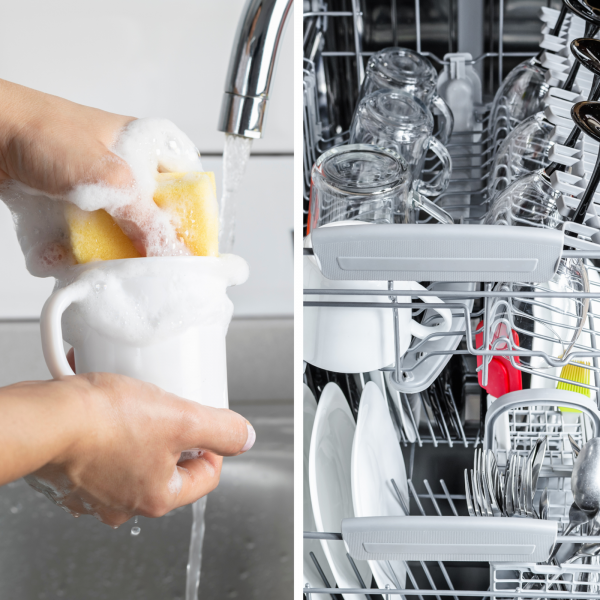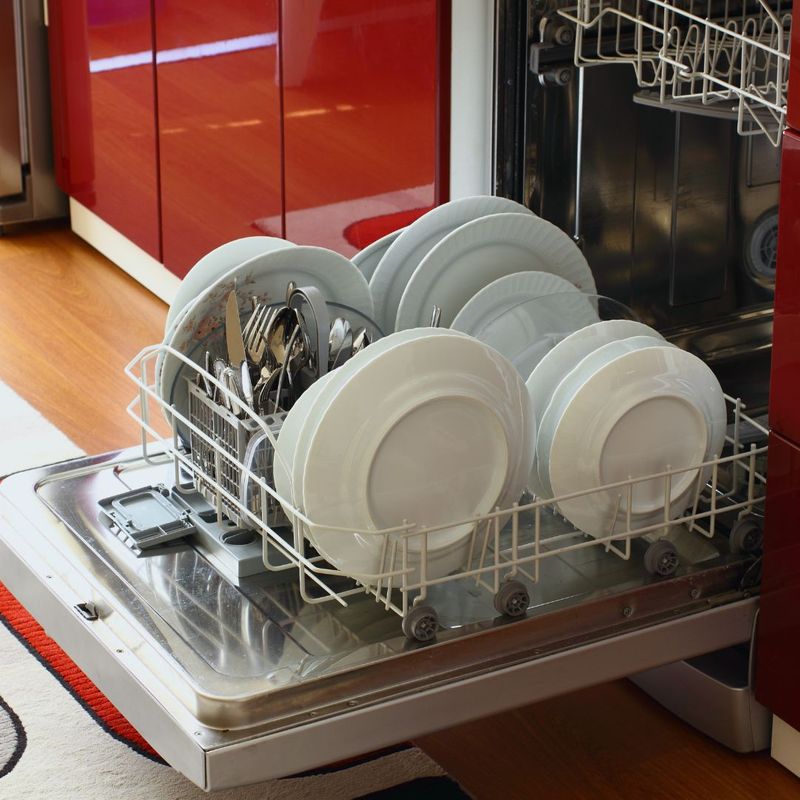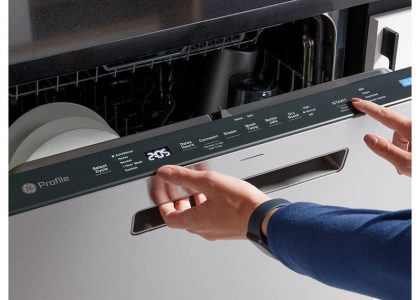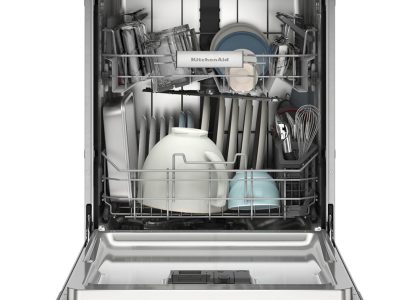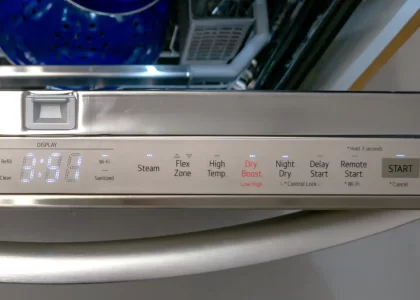Initial Investment and Installation Costs
How much does it cost to run a dishwasher? When considering a dishwasher purchase, initial costs play a vital role. Here’s what to factor in:
- The price of the dishwasher itself: This can vary widely. Basic models may start at a couple of hundred dollars. High-end units can cost over a thousand.
- Installation fees: If you’re not DIY-savvy, professional installation may be necessary. This can range from $100 to $500, depending on complexity.
- Additional parts: Sometimes extra parts are needed. A power cord, water supply line, or a mounting kit could add to the initial outlay.
- Possible electrical upgrades: Older homes might need an electrical upgrade to handle a modern dishwasher. This could mean an additional cost.
Knowing these expenses helps to understand how much it costs to run a dishwasher in the long run. It’s not just about energy and water consumption—the initial investment impacts your wallet too. Be sure to consider this when making your decision.
Average Energy Consumption of Dishwashers
Understanding the average energy consumption of dishwashers is key to calculating running costs. Generally, dishwashers are classified into different energy efficiency ratings. This rating influences how much energy the appliance uses during a cycle. It’s important to check the energy star rating when you buy a dishwasher. Here are the factors you should consider:
- Energy Star Certification: Look for this symbol. It means the dishwasher meets certain energy efficiency guidelines.
- Dishwasher Size: Compact models often use less energy than standard-sized ones. But, they may not always be suitable for larger households.
- Usage Frequency: Running a dishwasher frequently can increase energy bills. Moderation is crucial.
- Energy-Saving Settings: Many modern dishwashers have eco-friendly cycles that use less energy.
- Type of Dishwasher: Built-in models might use less energy compared to portable ones.
To provide an example, an average dishwasher may use approximately 1.5 kWh per cycle. At the average U.S. electricity rate, this can cost around $0.17 per cycle. This might seem small, but it adds up over time. Look at your dishwasher model’s manual for the exact figures to get a better estimate of how much it costs to run a dishwasher. Calculating these costs can be a simple but effective way to manage your household budget.
Water Usage and Cost Impact
Water consumption is an important factor in running a dishwasher. The amount of water dishwashers use can affect your utility bills. Here are key aspects to consider about water usage:
- Dishwasher Water Efficiency: Models with high water efficiency ratings use less water per cycle. This means lower water bills.
- Average Water Use Per Cycle: An average dishwasher might use about 3 to 5 gallons per wash. Energy-efficient models could use as little as 2 gallons.
- Water Costs: Depending on where you live, the cost of water can vary. Knowing how much your local utility company charges per gallon is vital to calculate costs.
To illustrate, if you run a dishwasher once a day, using an average of 4 gallons per cycle at $0.004 per gallon, you could be spending roughly $6 per month on water. Over a year, that’s about $72 just for water to run your dishwasher. Comparing dishwashers based on their water usage is essential when you’re looking to keep running costs down.
Consider eco-friendly features that minimize water use. Features like soil sensors, which adjust water usage based on how dirty the dishes are, can lead to significant savings. Being smart about how you load the dishwasher can also reduce water usage, as a full load uses water more efficiently than running two half-loads. Through careful consideration of these factors, homeowners can keep their appliance running costs in check.
Detergent and Rinse Aid Expenses
The cost to run a dishwasher includes detergent and rinse aid expenses. These consumables add to the overall running costs. Here’s a breakdown of what to consider:
- Detergent Cost: The type and brand of detergent can impact the cost. Tablets often cost more than powder or gel.
- Rinse Aid Cost: Rinse aid helps with drying and reduces spots. Its use adds a small amount to each cycle.
- Usage Per Cycle: Check the recommended amount per wash to calculate monthly costs.
Assuming you run one dishwashing cycle per day, using a detergent tablet that costs about $0.20 and rinse aid at roughly $0.05 per cycle, the monthly expense for these supplies would be about $7.50. Annualized, this amounts to an extra $90 on running your dishwasher. It’s important to factor in these costs when budgeting for your dishwasher’s running expenses.
Buying in bulk or choosing store brands could lower these costs. Aim for the best value without sacrificing cleaning quality. Also, some dishwashers have a built-in water softener. This feature could let you use less detergent, saving you money over time. By considering these detergent and rinse aid expenses, alongside energy and water costs, you can get a clearer picture of how much it costs to run a dishwasher.
Maintenance and Repairs Over Time
Regular maintenance and occasional repairs affect your dishwasher’s running costs. Here’s what impacts your budget:
- Regular Maintenance: This includes simple actions like cleaning the filters and checking the spray arms. Regular upkeep can prevent costly repairs.
- Replacement Parts: Parts like racks or gaskets may wear out and need replacement. Their cost varies.
- Service Fees: Hiring a technician for repairs or maintenance can add a significant amount.
- Warranty Coverage: Check if your warranty covers repairs, which can save money.
- DIY Repairs: Doing some maintenance yourself can cut costs but requires know-how.
Skipping on maintenance might result in higher energy and water use, as a poorly maintained dishwasher works harder. If repairs become frequent, consider if it’s time to replace the unit. Compared to constant repairs, a new, efficient model might save money in the long term. In summary, factor in maintenance and repair costs to understand how much it costs to run a dishwasher.
How Dishwasher Features Affect Running Costs
How much does it cost to run a dishwasher? When exploring how much it costs to run a dishwasher, features matter. Variations in features can lead to distinct differences in running costs. Here are some key feature-related factors to keep in mind:
- Soil Sensors: Dishwashers with soil sensors adjust water and energy use based on dirt levels. This smart feature reduces waste and can lower your bills.
- Energy-Saving Modes: Look for dishwashers with ‘eco’ cycles or energy-saving modes. They cut down on energy use and can reduce how much you pay over time.
- Delay Start: This function allows you to run the dishwasher at off-peak hours. Energy rates may be lower, which can save you money.
- Heated Dry: Turning off heated dry or choosing a model without it can save energy. Air drying or using a fan uses less electricity.
- Dishwasher Size: As said earlier, compact models might use less resources. Big families should balance size with efficiency to manage costs.
- Water Heating Capabilities: A dishwasher that heats water efficiently works better. It does not rely on your home’s water heater as much, lowering energy use.
Modern dishwashers often come with a range of features designed to enhance convenience and efficiency. However, the true cost impact of those features will depend on your usage habits and the specific model you choose. By selecting a dishwasher with features that target conservation of water and energy, you create opportunities for savings in your utility bills. Remember to review these features when making your choice, as they directly influence the ongoing costs of operating your dishwasher.
Comparing the Cost of Dishwashing to Hand Washing
When assessing how much it costs to run a dishwasher, it’s useful to compare it to hand washing. This comparison provides perspective on the value and efficiency of using a dishwasher. Consider these elements:
- Time Efficiency: Dishwashers save time. Hand washing takes longer and could limit time for other activities.
- Water Consumption: Hand washing often uses more water. A running tap can consume up to 2 gallons per minute.
- Energy Use: Heating water for hand washing uses energy. Dishwashers with efficient heaters can be more economical.
- Detergent Use: Hand washing may use more detergent. Dishwasher detergents are concentrated and used sparingly per cycle.
A study might find that, on average, hand washing uses up to 27 gallons of water compared to the 3 to 5 gallons used by a dishwasher. If you’re washing dishes by hand thrice a day, the costs could exceed the expense of running a dishwasher once. However, each household differs in their routines and habits, which can affect this comparison. When thinking about cost, also weigh convenience and time saved against potential savings from hand washing.
In summary, a dishwasher can be a cost-effective choice. It often leads to lower water usage, saves time, and can be more energy efficient when used correctly. Balancing the convenience of a machine with the effort of hand washing is key to deciding what’s best for your home and budget.
Tips for Reducing Dishwasher Running Costs
To lower the cost of running a dishwasher, consider these practical tips:
- Load it efficiently: Ensure the dishwasher is full before running it. Avoid half-loads.
- Use eco-friendly cycles: Select energy-saving programs. They use less water and electricity.
- Skip heated drying: Open the door to air-dry dishes or use a towel. It saves energy.
- Wash during off-peak times: Run your dishwasher at night or during off-peak hours to benefit from lower energy rates.
- Regular maintenance: Clean filters and inspect spray arms routinely. It prevents costly repairs.
- Adjust settings: Personalize settings to match soil levels. Avoid wasting resources on lightly soiled dishes.
- Use the right detergent: Bulk-buy eco-friendly detergent. It cuts costs and helps the environment.
- Check for leaks: Fix leaks promptly. Leaks can increase water use and costs.
- Upgrade if necessary: Old dishwashers may be less efficient. Consider buying a new energy-star rated model.
How much does it cost to run a dishwasher? By following these steps, you can reduce how much it costs to run a dishwasher. Simple changes and mindful usage can make a noticeable difference in your utility bills.



